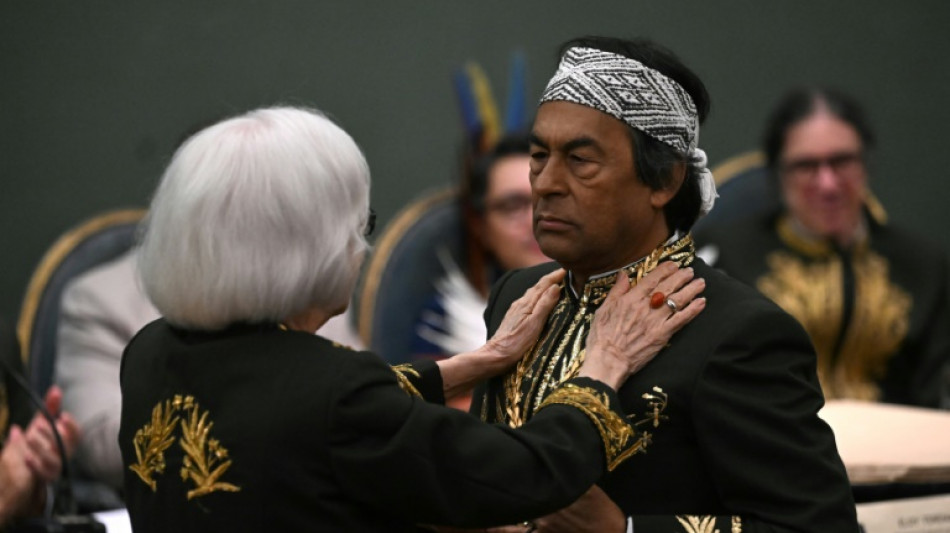
SCS
-0.0400

Writer and activist Ailton Krenak on Friday became the first Indigenous person inducted into the Brazilian Academy of Letters, as dancers in feather headdresses shook up the staid proceedings of the country's leading literary institution.
Wearing an Indigenous bead bandana along with the traditional gold-embroidered suit of the Academy's members, Krenak joked about his "distinguished new outfit" and feeling a bit out of place in the predominantly white institution.
Krenak, 70, is known for an acclaimed body of work criticizing the excesses of colonialism and capitalism, including the essay collection "Ideas to Postpone the End of the World" (2019), which has been translated into more than 10 languages.
He is the first member of Brazil's more than 300 Indigenous peoples to be inducted into the Academy, the rough equivalent of France's revered Academie Francaise or Spain's Real Academia.
Seen as a standard-bearer of Brazilian language and literature, the Rio de Janeiro-based institution has 40 members, known as the "immortals," who hold their seats for life.
Krenak, a writer, journalist, poet, philosopher, activist and environmentalist, was elected in October with 23 of 39 votes to the seat left by deceased historian Jose Murilo de Carvalho.
The Academy, which has at times faced accusations of racism, has gradually begun reflecting Brazil's diversity in recent years.
In 2022, it inducted singer-songwriter and former culture minister Gilberto Gil.
He and the writer and academic Domicio Proenca Filho, inducted in 2006, are the first Afro-Brazilians to join the academy since it was founded in 1897 by intellectuals including the iconic black writer Machado de Assis.
Krenak has vowed to use his seat to help shine a light on Brazil's nearly 200 Indigenous languages.
Retracing five centuries of Indigenous suffering in his speech, he questioned gestures such as the apology issued Tuesday by Brazil's human-rights ministry -- the first of its kind from the government -- for the persecution of the country's native peoples.
"Saying sorry afterwards means very little in terms of reparation. What we need is real reparations for native peoples," he said to applause.
He also criticized the destruction of the environment by humankind -- or "Predatory sapiens," as he called the species -- urging people to rethink our relationship with nature.
F.Damodaran--DT